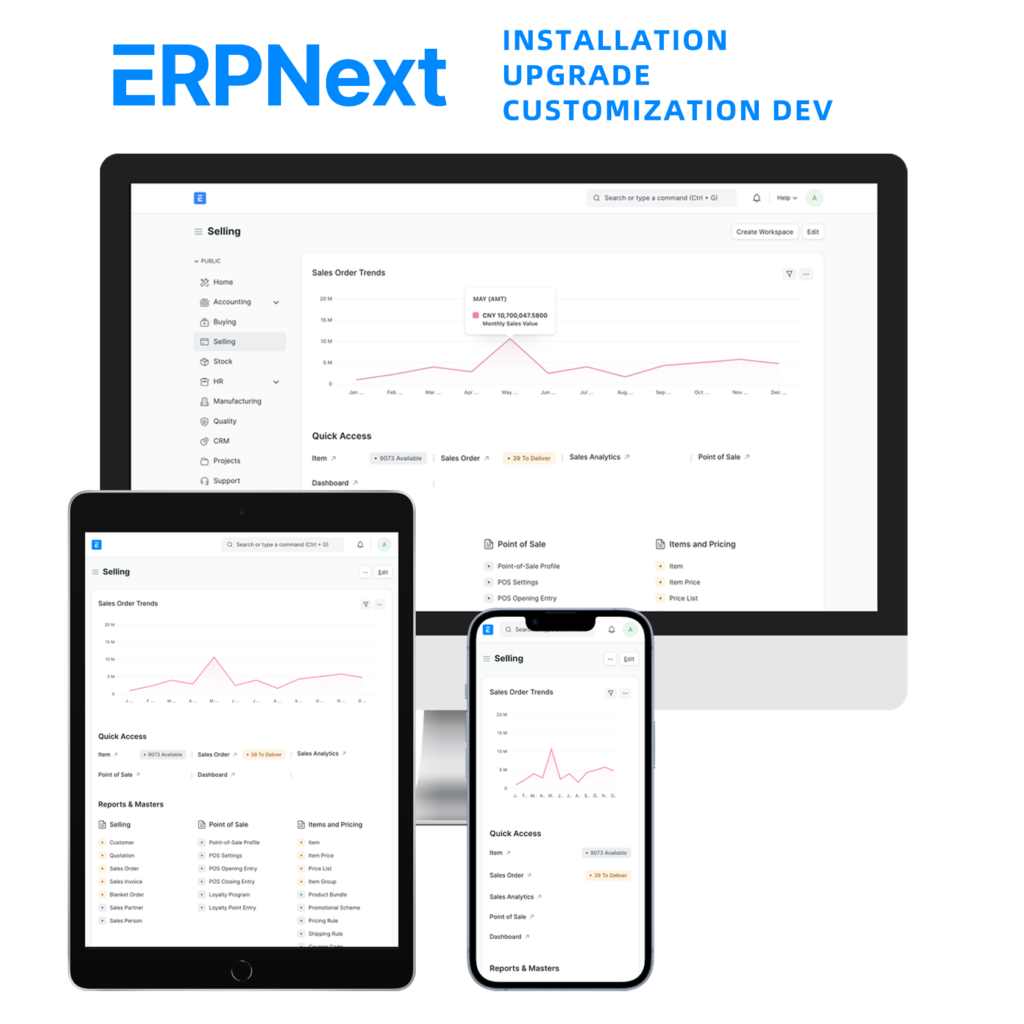Many business owners and IT managers in China share a common belief: “Chinese ERP systems are hard to use.” Complicated interfaces, slow processes, painful implementations, and endless training… It seems like the software is always the problem.
But what if the real issue isn’t with the system, but with the people using it?
Let’s take a closer look, and you might discover that most ERP failures are caused by misconceptions and poor execution, not the software itself.

1. Bosses Don’t Know What They Want: Treating ERP Like a Punch Clock
Some business owners adopt ERP systems simply because “everyone else is doing it” or “it’s what big companies do.” But they never take the time to clarify why they’re implementing it or what problems they want to solve.
Take a hardware trading company, for example. The owner treated ERP like an attendance tracker—just checking if employees entered sales orders. He didn’t care whether the data was useful or whether it could support decision-making. Naturally, the system failed, no one used it properly, and he blamed the “bad software.”
2. No Clear Goals: ERP Becomes a “Cure-All Pill”
ERP isn’t a magic bullet that fixes all business issues. Many companies start implementation without clear objectives, hoping to “figure it out later.” That’s like building a foundation without a plan for the house.
A manufacturing company, for example, wanted ERP to “fix their chaotic production scheduling.” But they never defined what “chaotic” meant or set any measurable KPIs. After implementation, nothing improved, and they concluded the ERP system was ineffective.
3. Refusing to Change: Old Habits vs. New Systems
ERP systems are designed to enforce standardized workflows. But many companies operate with informal practices: approvals over WeChat, supplier selection based on personal contacts, and handwritten inventory slips.
Once ERP is introduced, it forces people to follow structured processes. Employees often find this “inconvenient” and push back. When the boss sees resistance, they retreat from change. The result? The system gets shelved, and the old ways continue.
4. No Ownership: ERP Becomes a Blame Game
Successful ERP implementation needs clear ownership—a project manager, data owners, process leads. But in many companies, it’s left to someone “who also handles IT,” and no one takes real responsibility.
Consultants keep asking, “How does this process work?” and the client says, “You figure it out for me.” When things go wrong, everyone blames each other, and the project quietly dies.
5. Inexperienced Consultants: It’s Not the ERP, It’s the People Deploying It
Some ERP vendors assign consultants who lack real-world experience. They don’t understand the industry but still advise clients on how to run their operations.
A food company, for example, hired an ERP team that had never dealt with food manufacturing. They didn’t understand batch tracking or expiration date traceability. The result? A poorly designed system that didn’t meet basic regulatory needs—and the client, again, blamed the software.
6. Incomplete Data: ERP Becomes an “Information Island”
ERP success depends on real, complete data. But many companies only partially use the system—sales records are entered, but purchase orders or financials are left out. The system becomes an isolated island of incomplete data.
One company diligently recorded sales, but ignored warehouse inputs. Inventory was always off, and when customers asked for urgent shipments, chaos ensued. Unsurprisingly, everyone said “the ERP system is useless.”
✅ Case Study: It’s Not the System, It’s the Strategy
Let’s look at a successful example. A company called “Mingchuang Home” implemented ERP with clear goals: improve on-time delivery and optimize inventory turnover. The CEO personally participated, assigned a project team, reviewed workflows, cleaned up data, and led training sessions.
In just six months, their on-time delivery rate jumped from 60% to 92%, and inventory turnover improved by 40%. Same ERP software—different results.
✅ Final Thoughts
Chinese ERP systems aren’t inherently bad. The real issues often come down to:
- Not understanding why you’re using ERP
- Not aligning processes and people
- Not leveraging data properly
- Not hiring the right consultants
ERP is just a tool. Whether it works depends entirely on how you use it.